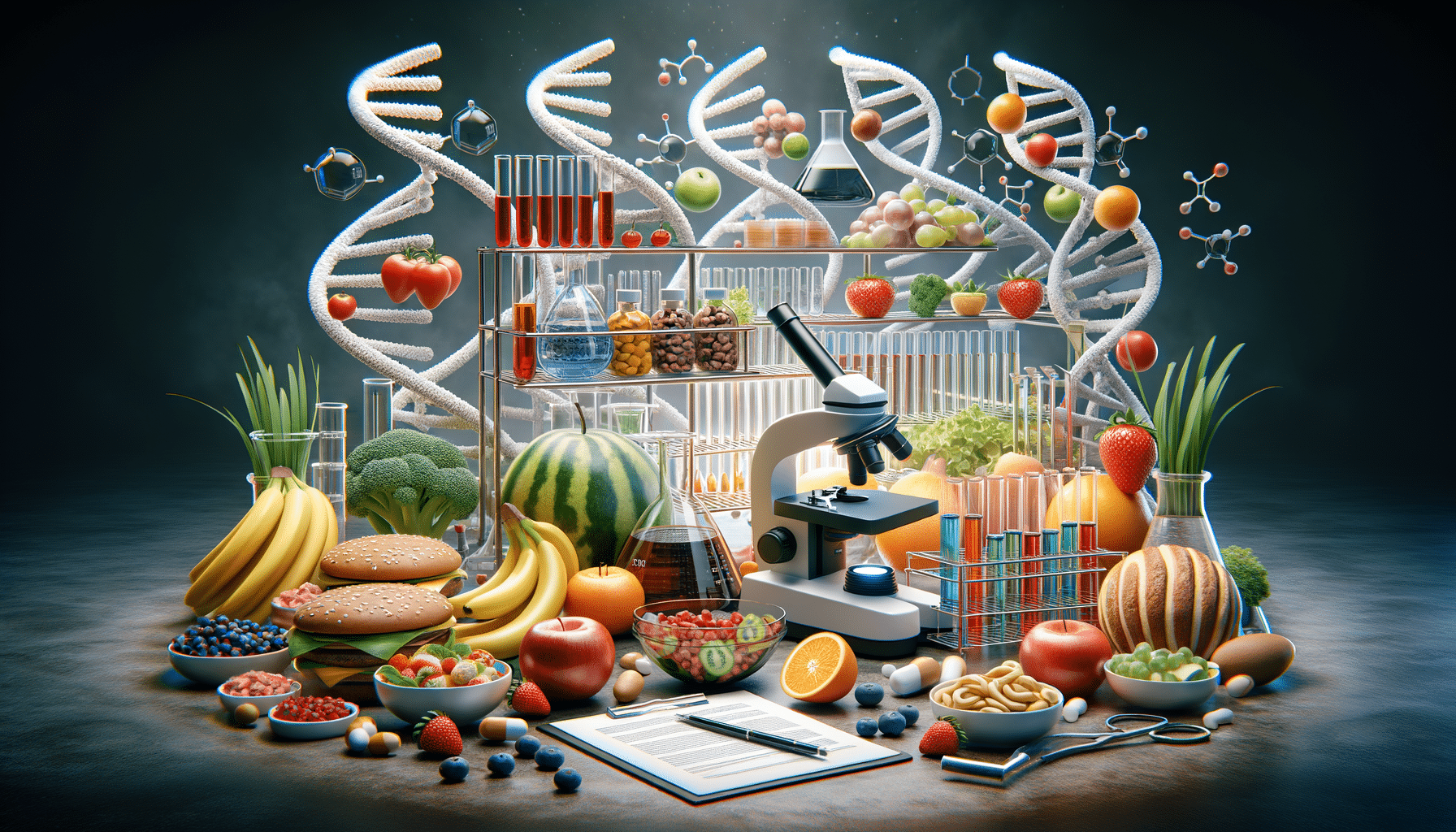
Which Foods Could Affect Your Health Based On Your DNA?
Understanding DNA Testing: A Gateway to Personalized Nutrition
DNA testing has become increasingly accessible, offering insights into our genetic makeup that can inform various aspects of our lives, including our dietary needs. By analyzing specific genetic markers, DNA tests can reveal how our bodies may respond to different nutrients, helping to tailor a diet that aligns with our unique genetic profile. This personalized approach to nutrition, often referred to as nutrigenomics, is transforming the way we think about food and health.
One of the key benefits of DNA testing in nutrition is its ability to identify genetic predispositions to certain conditions, such as lactose intolerance or gluten sensitivity. Understanding these predispositions allows individuals to make informed dietary choices that could prevent discomfort and improve overall well-being. Moreover, DNA tests can provide insights into how efficiently our bodies metabolize various vitamins and minerals, guiding us to adjust our intake accordingly.
While the concept of DNA-based dietary recommendations is promising, it is essential to approach it with a critical mind. The field of nutrigenomics is still in its early stages, and while some genetic markers have been well-researched, others require further validation. Therefore, it’s crucial to combine DNA test results with professional dietary advice to ensure a balanced and effective nutrition plan.
The Science Behind DNA and Dietary Responses
The relationship between DNA and dietary responses is rooted in the study of how our genes affect our metabolism and nutrient absorption. Each of us has a unique genetic code that influences how we process different foods. For example, variations in the FTO gene have been linked to differences in how individuals metabolize fats, impacting weight management strategies.
Research has shown that certain genetic variants can affect the body’s response to dietary fats, carbohydrates, and proteins. For instance, individuals with specific gene variants may experience higher cholesterol levels when consuming saturated fats, while others may be more sensitive to the effects of high carbohydrate intake. These genetic insights can help tailor dietary recommendations to optimize health outcomes.
However, it’s important to note that genetics is just one piece of the puzzle. Environmental factors, lifestyle choices, and overall dietary patterns also play significant roles in determining health outcomes. Therefore, while DNA tests can provide valuable information, they should be used in conjunction with other health assessments to create a comprehensive nutrition plan.
Practical Applications: Tailoring Your Diet Based on DNA
Once you have your DNA test results, the next step is to translate these insights into practical dietary changes. For example, if your DNA test indicates a higher risk of vitamin D deficiency, you might consider increasing your intake of vitamin D-rich foods or supplements. Similarly, if you are genetically predisposed to lactose intolerance, you could explore lactose-free alternatives to dairy products.
DNA testing can also inform decisions about macronutrient distribution. For individuals with a genetic tendency to gain weight with high carbohydrate diets, a lower-carb, higher-protein diet might be more effective for weight management. Conversely, those with a genetic profile favoring carbohydrate metabolism may benefit from a diet that includes more whole grains and fruits.
It’s essential to remember that while DNA testing can provide valuable dietary guidance, it should not replace professional medical or nutritional advice. Consulting with a healthcare provider or a registered dietitian can help you interpret your DNA test results and integrate them into a balanced, sustainable eating plan.
Limitations and Considerations of DNA-Based Dietary Advice
While DNA testing offers exciting possibilities for personalized nutrition, there are limitations and considerations to keep in mind. First, the field of nutrigenomics is still evolving, and not all genetic markers have been thoroughly validated. This means that some DNA test results might be based on emerging research that requires further confirmation.
Additionally, genetic predispositions do not guarantee specific outcomes. Having a genetic marker for a particular dietary response does not mean it will manifest in the same way for everyone. Lifestyle factors, such as physical activity, stress levels, and sleep, also significantly influence health outcomes and should be considered alongside genetic information.
Moreover, the cost of DNA testing can be a barrier for some individuals. While prices have decreased over time, comprehensive tests that provide detailed dietary recommendations can still be expensive. It’s important to weigh the potential benefits against the cost and ensure that any dietary changes are sustainable and aligned with overall health goals.
Conclusion: Embracing DNA Insights for Better Health
DNA testing presents a fascinating opportunity to enhance our understanding of how our bodies interact with food, offering a path to more personalized nutrition. By uncovering genetic predispositions and dietary responses, individuals can make informed choices that align with their unique health profiles. However, it’s essential to approach DNA-based dietary advice with a balanced perspective, recognizing the limitations and integrating genetic insights with broader lifestyle considerations.
As the science of nutrigenomics continues to advance, it holds the potential to revolutionize the way we approach diet and health. Embracing this technology responsibly, in conjunction with professional guidance, can lead to more effective and personalized dietary strategies, ultimately contributing to improved health and well-being.